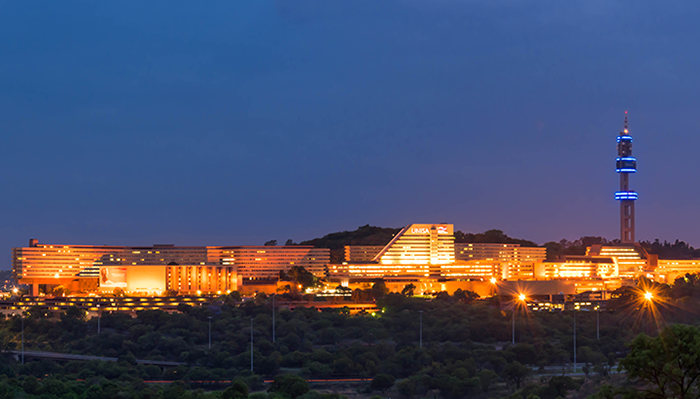College of Human Sciences
Unisa engaged scholarship project heads to parliament

The Skills Training for Translators and Editors Project team with parliamentary language practitioners
Established in 2016, the Skills Training for Translators and Editors Project led by the Department of Linguistics and Modern Languages under the College of Human Sciences, aims to enhance the capacity of novice and practising language practitioners alike. Between 2016 and 2025, the project reached eight provinces, being KwaZulu-Natal, Limpopo, Mpumalanga, North-West, Gauteng, Eastern Cape, Free State and the Western Cape.
The parliament’s language practitioners are responsible for a wide range of essential language services, including interpreting, translation, Hansard reporting and language editing. Their work ensures that parliamentary proceedings are accessible, accurately recorded and professionally communicated across South Africa’s diverse linguistic landscape.
Unisa’s two-day workshop covered a wide range of topics relevant to the professional development of these practitioners, focusing on ethics in translation, standards (TC037) and professionalism in translation. It further focused on translation process itself, translating figurative and sensitive language, the interface between translation and artificial intelligence, tense in English and its correlation with tense in African languages, term standardisation, as well as editing fundamentals.
Karabo Mafetsa, Rachel Maboa, Dr Kganathi Shaku, Dr Amanda Nokele and Dr Dakalo Takalani from the Deparment of Linguistics and Modern Languages
At the end of the workshop, parliament’s language practitioners expressed their deepest appreciation for the knowledge shared by the project team. They indicated a strong desire for such events to be held more frequently to keep up with the latest trends and developments in language practice.
Additionally, they expressed a need to forge partnerships with universities such as Unisa, to enable their professional practice to contribute to teaching, learning and research. Correspondingly, the university will continue to use theory to inform and sustain language practice within institutional settings.
At Unisa, we grasp the profound significance of higher education for freedom, democracy and nation-building. Higher education set in the direction of national, continental and international development goals can produce the thinking and ideation required for scholarship to meet societal needs.
* By Nnana Martina Jege, Communications and Marketing, College of Human Sciences
Publish date: 2025/09/11

 Unisa co-hosts G20 community outreach in the Eastern Cape
Unisa co-hosts G20 community outreach in the Eastern Cape
 Unisans gain membership of prestigious science academies
Unisans gain membership of prestigious science academies
 Advocating for disability transformation through servant leadership
Advocating for disability transformation through servant leadership
 Unisa Press continues to illuminate the publishing space
Unisa Press continues to illuminate the publishing space